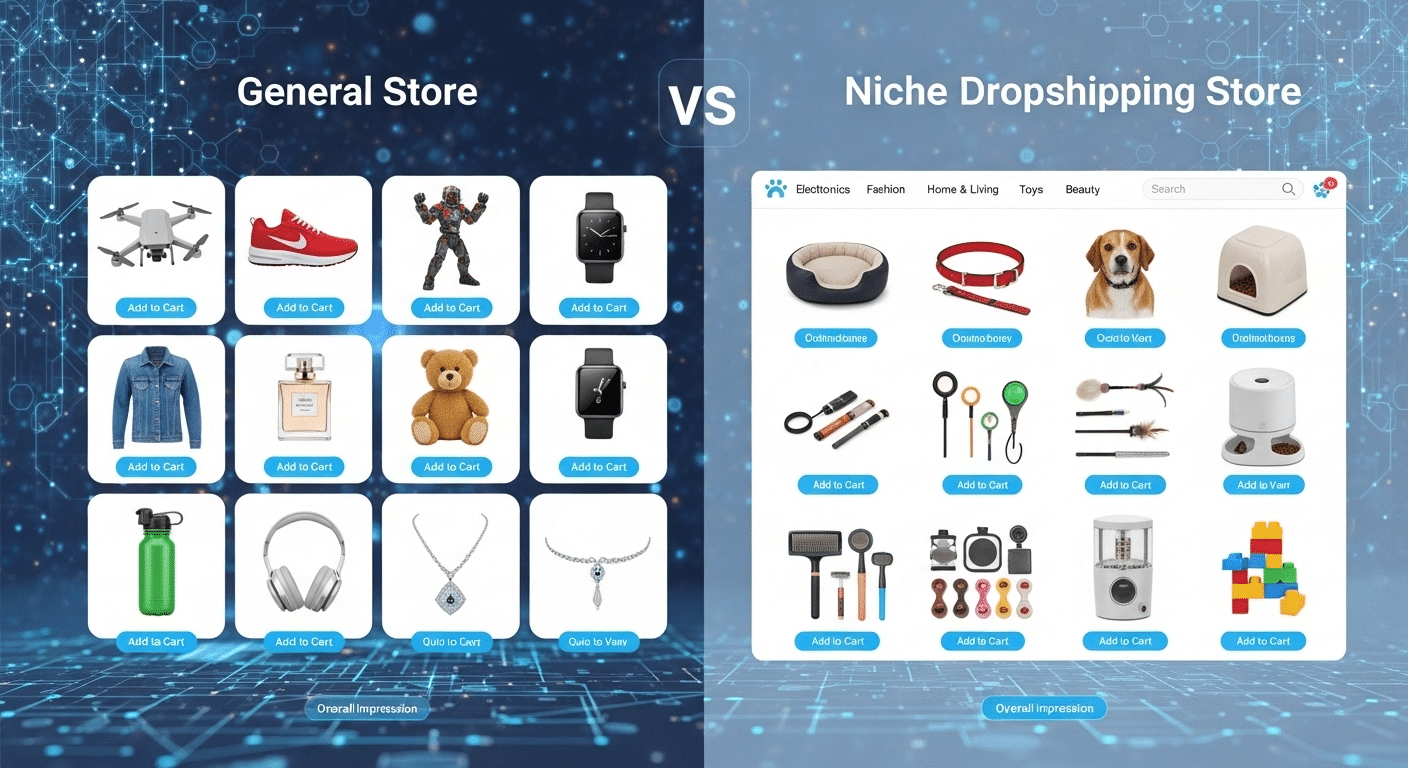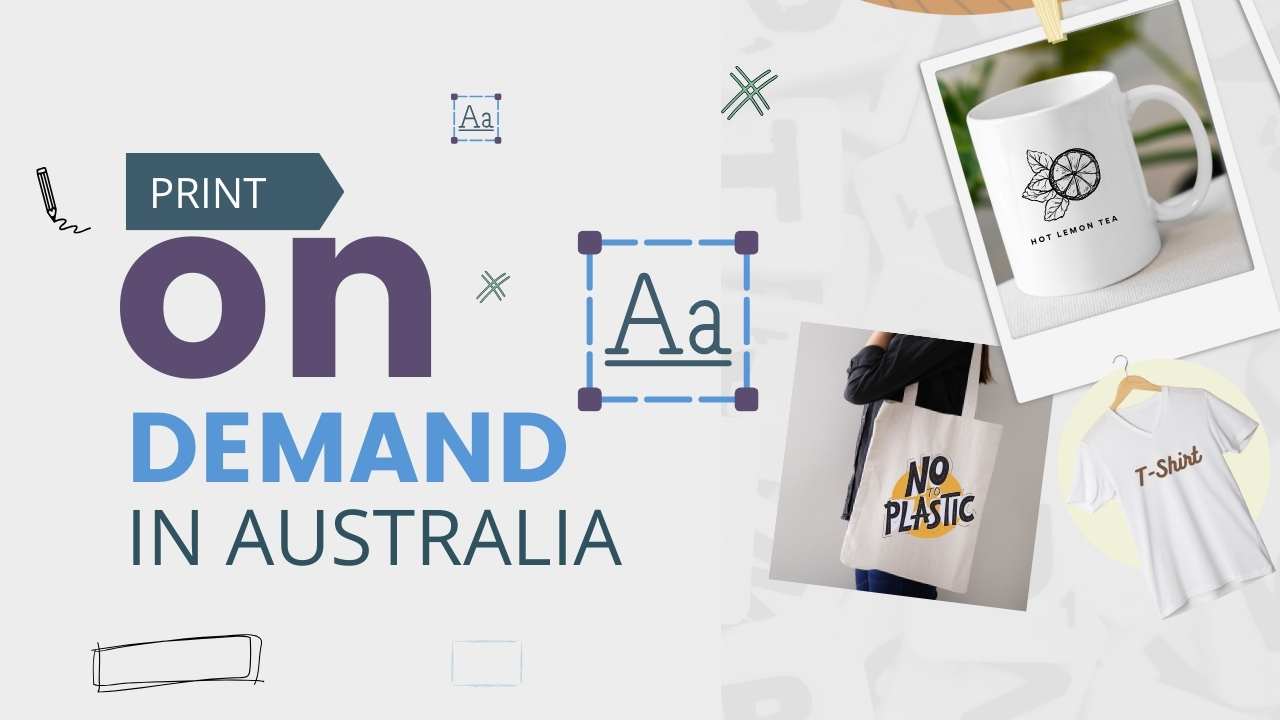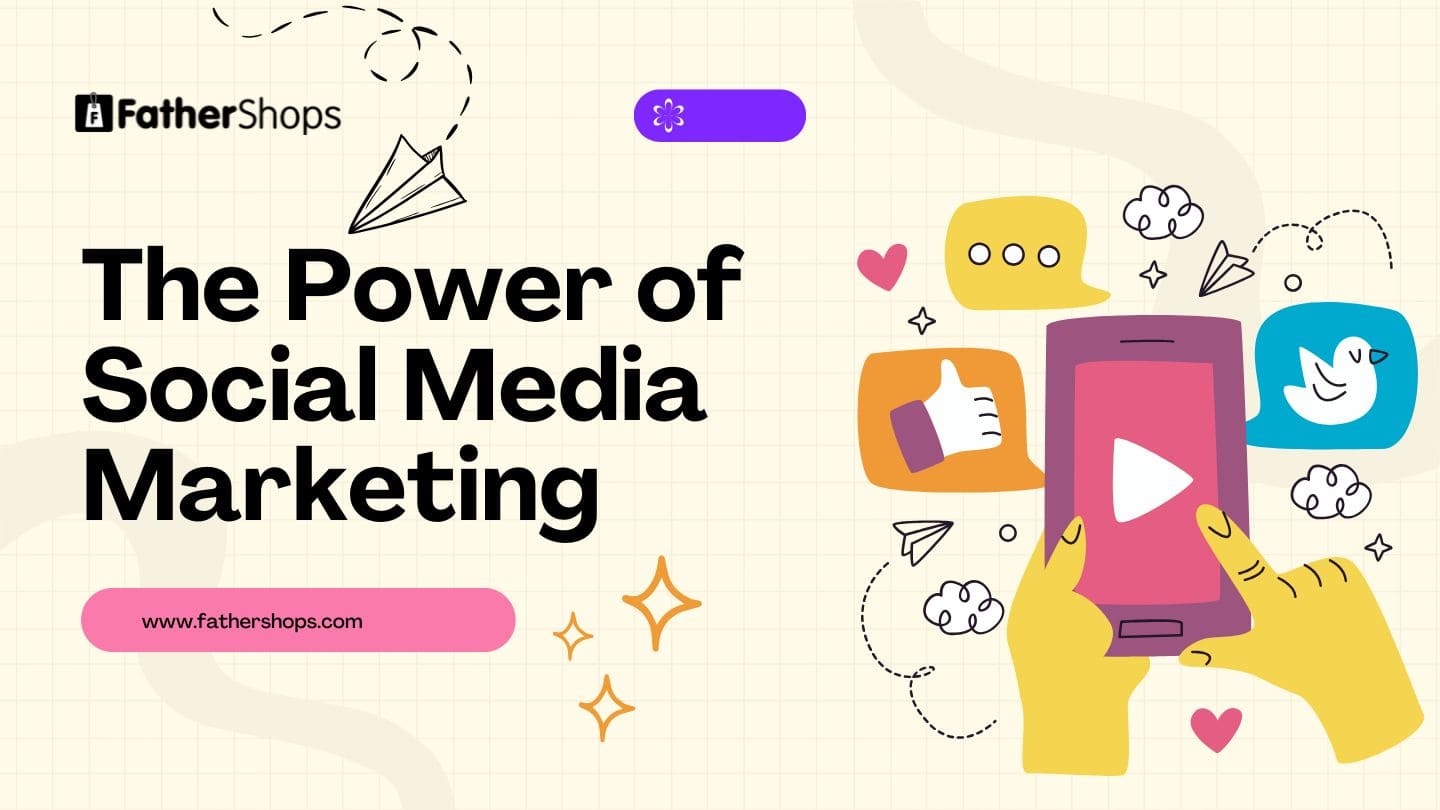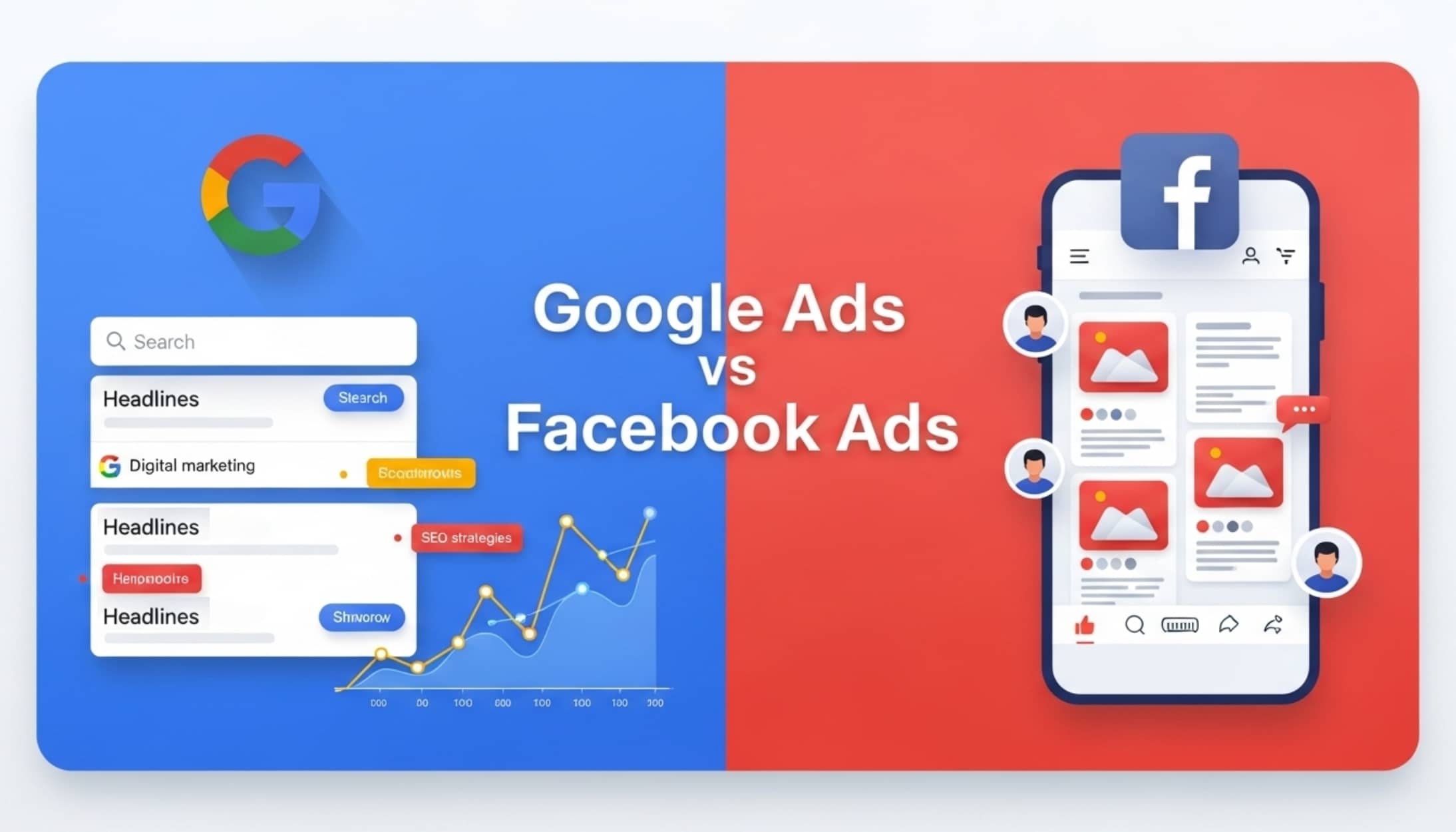Choosing the right store model is a crucial first step for any ecommerce or dropshipping business. Should you build a general store with a variety of products, a niche store targeting a specific category, or a one product store with complete focus?
This comprehensive guide weighs the pros, cons, and ideal use-cases so you can make the smartest choice for your business goals.
Focus Keyword: one product store vs general storeWhat Are the Store Types?
- General Store: Sells a broad range of unrelated products (like an online department store).
- Niche Store: Sells products focused on a specific interest, industry, or category (e.g., only pet accessories or only home fitness).
- One Product Store: Sells only one flagship product (or a tightly related set), branding everything around that single offer.
One Product Store vs General Store vs Niche Store — Key Differences
| Aspect | General Store | Niche Store | One Product Store |
|---|---|---|---|
| Product Range | Many unrelated categories | All products in one category/niche | Only one product (or slight variations) |
| Target Audience | Very broad, no specific focus | Targeted, with shared interests | Ultra-targeted, specific customer need |
| Brand Identity | Hard to build distinct brand | Strong, focused brand image | Laser-focused on single product USP |
| Conversion Rates | Lower (many distractions) | Mid-high (themed, relevant) | Highest (total focus, no distraction) |
| Testing & Trends | Best for testing fast/trending items | Can pivot, but within niche boundaries | Risk, must pick a true ‘winning’ product |
| Marketing | Complex, hard to target ads/content | Easier targeting; clear messaging | Simplest; all content & ads on one product |
| Upsell & Cross-sell | High potential via diverse products | Very effective (products complement) | Very limited |
| SEO Potential | More broad, lower authority | High organic potential for niche KWs | Very high for product-specific KWs |
| Operational Complexity | Most complex (many SKUs, suppliers) | Moderate (niche suppliers) | Simplest (one SKU) |
| Risk | Low risk, but lower focus | Balanced risk/reward | High risk (all eggs in one basket) |
Pros and Cons – One Product Store vs General Store
One Product Store
- Pros:
- Extremely high conversion rates: No distraction, all traffic is funneled to the buying action.
- Brand storytelling is powerful: You build expertise/trust for a problem/solution.
- Lower cost/complexity: Easier to set up, manage, scale, test.
- Easy for paid ads & influencer marketing: Efforts are all focused.
- SEO: Optimizing for keywords related to your one product is straightforward.
- Cons:
- High risk: If the product flops, your whole store flops.
- No upsell/cross-sell: Hard to boost cart value or recover buyers with related offers.
- Dependency: Succeed or fail based on supplier reliability for a single SKU.
- Trend risk: Vulnerable to market shifts and competition on a single product.
General Store
- Pros:
- Can quickly test and sell a variety of trending products.
- If one product fails, many others can compensate.
- Flexible marketing—can run multi-product offers, bundles, etc.
- Higher chance to appeal to a wider, general audience.
- Cons:
- Branding is challenging; hard to stand out from large competitors.
- Lower conversion rates: Website visitors can get overwhelmed.
- Marketing is more expensive and less targeted.
- Operational complexity: More to manage with suppliers and fulfillment.
Niche Store
- Pros:
- Clear niche focus means better audience targeting and brand credibility.
- Smoother marketing, easier upsells and cross-sells.
- High conversion rates compared to a general store.
- Easier content creation and SEO for a subject you know.
- Can still switch products within the niche over time.
- Cons:
- Harder to pick a winning niche than just following trends.
- Tied to the niche; pivoting can be hard if trends change outside your area.
- Still needs more product sourcing and management than a single product store.
Choosing the Right Model: When to Choose What?
- One Product Store: Best for a unique, “wow-factor” product with strong demand. If you can create a story and dominate a focused market fast, this is the way to go.
- General Store: Best for testing trending products, or if you want maximum flexibility. Great for beginners to experiment before focusing on a specific niche.
- Niche Store: Ideal for branding, SEO, and community building. If you have passion or expertise in a subject, or want to build a lasting business, start here.
Case Studies & Real-World Examples
- One Product Store: Palmpress (single-serve coffee press), Daylight (lamp brand). All marketing focused on solving a problem with one unique SKU.
- General Store: Think of department store models online, like Amazon or mega dropshipping sites—huge range, massive audience, harder to build loyalty.
- Niche Store: JustDuaIt (Muslim-Canadian themed fashion and jewelry)—sales and content focused on one audience’s needs.
SEO Tips for “One Product Store vs General Store”
- Use your focus keyword (“one product store vs general store”) in the main title, meta tags, headings, and naturally throughout your content.
- Add related variations: “single product vs general store”, “niche vs general store”, “best store type for dropshipping”.
- Write comparison guides, case studies, and “best for X” posts to capture long-tail searches.
- Optimize for search intent: help users decide the best business model with clear, actionable info.
FAQs
- Q: Is a one product store better for beginners?
- No model is strictly “better”—it depends on your experience, resources, and product choice. One product stores are simpler, but risky if you haven’t validated a hot seller.
- Q: Can I start general, then focus on one niche or product?
- Yes—many dropshippers start with a general store to test ideas, then spin off successful niches or products into focused stores once they see traction.
- Q: Which store type is best for SEO?
- Niche (and single product) stores have the best potential for topical authority and keyword ranking, as their content is focused and targeted.
Conclusion: Which Should You Pick?
There’s no universal winner in the “one product store vs general store” debate. If you have a trending product and want laser-focused marketing with minimal setup, one product stores are effective.
If you want flexibility, easier upselling, and product testing, general stores have the edge. For lasting brands and engaged audiences, niche stores are the sweet spot.
Ultimately, choose the model that matches your goals, product strengths, and resources—and be ready to adapt as you learn!




